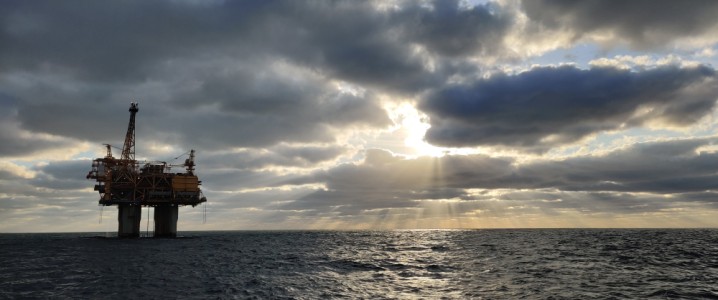
Supermajors Shell and TotalEnergies are set to significantly increase their oil and gas output in Nigeria, Africa’s leading oil producer, over the next few years. Both companies have announced ambitious plans to bring new projects online by 2027, marking a significant boost in production capacity for the region.
Shell is advancing its Bonga North deepwater oil and gas field, with expectations to commence production by 2027. Meanwhile, TotalEnergies is making strides with the Ubeta gas field, also slated to begin operations by the same year. These developments were highlighted by the top executives of the companies’ Nigerian units during a recent energy event in Abuja.
Major Investments and Project Timelines
Last year, TotalEnergies, which operates the OML 58 onshore license in Nigeria with a 40% interest, made a Final Investment Decision (FID) on the $550 million Ubeta gas field. The project is poised to supply gas to Nigeria LNG, a liquefaction plant on Bonny Island, which is currently undergoing a capacity expansion from 22 to 30 million tonnes per annum (Mtpa). TotalEnergies holds a 15% interest in this facility.
“The 70,000 barrels per day from Ubeta is a major milestone, and first gas/commissioning is expected by 2027,” Matthieu Bouyer, CEO of TotalEnergies Upstream Companies in Nigeria, stated.
Similarly, Shell is pushing forward with the $5-billion Bonga North project. Ronald Adams, managing director of Shell Nigeria Exploration and Production Company Limited (SNEPCo), emphasized the accelerated project schedule, aiming for first oil around mid-2027. This project will integrate with the existing Shell-operated Bonga Floating Production Storage and Offloading (FPSO) facility.
Strategic Developments and Future Prospects
In addition to these projects, both Shell and TotalEnergies are eyeing further investments in Nigeria. Shell is targeting an FID on the $8 billion Bonga Southwest-Aparo project, while TotalEnergies is planning for an FID on the IMA gas field by 2026.
The Nigerian government has been actively encouraging international oil companies to collaborate in boosting the country’s oil output, which has struggled to meet its OPEC quota in recent years. These new projects are seen as pivotal steps towards achieving that goal.
Industry Context and Historical Parallels
Nigeria’s oil industry has long been a cornerstone of its economy, but it has faced challenges such as fluctuating oil prices, regulatory hurdles, and security concerns. The recent push by supermajors like Shell and TotalEnergies to expand operations reflects a renewed confidence in the region’s potential.
Historically, Nigeria has been a significant player in the global oil market, yet production has often been hampered by infrastructure issues and political instability. The new investments by these supermajors could signal a turning point, potentially stabilizing and increasing Nigeria’s oil output in the coming years.
Expert Opinions and Industry Implications
Industry analysts suggest that these developments could have far-reaching implications for both Nigeria and the global energy market. Increased production capacity may help stabilize global oil prices and provide a more secure energy supply.
According to energy analyst Dr. James Okoro, “The commitment by Shell and TotalEnergies to invest heavily in Nigeria is a positive sign for the country’s oil sector. It indicates a long-term vision and confidence in Nigeria’s potential as a major oil producer.”
As these projects move forward, the focus will be on ensuring that the benefits extend beyond mere production increases, potentially leading to job creation and economic growth within Nigeria.
In conclusion, the strategic moves by Shell and TotalEnergies to boost oil and gas production in Nigeria represent a significant development in the energy sector. With major projects like Bonga North and Ubeta on the horizon, the coming years could see Nigeria reclaim its position as a leading oil producer on the global stage.






